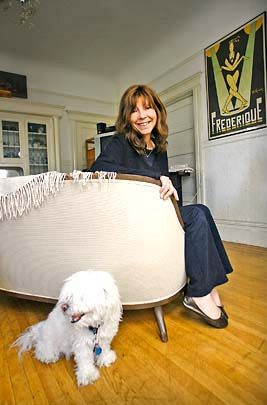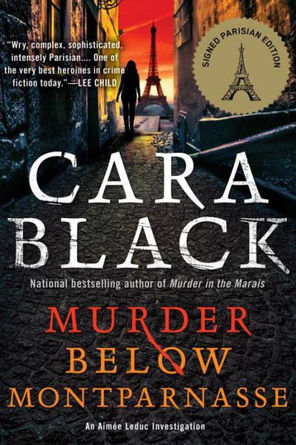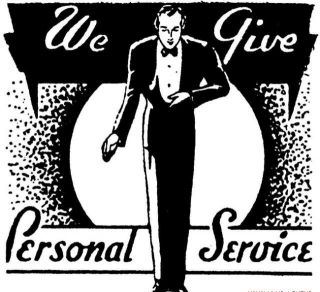by Alexandra Sokoloff
I’m back from Left Coast Crime and I always try to do the con wrap-up for anyone who can’t be there in person and so that I can sort out my own memories of the whirlwind that a conference always is. LCC is one of my favorite smaller cons, as laid-back as its name implies and one of the friendliest out there.
The actual conference was in Colorado Springs, but my con experience started in Denver, the night before, because mystery powerhouse and sweetheart Twist Phelan and her wonderful other half, Jack Chapple, were getting married and had arranged the wedding to coincide with LCC so that all their author friends could come (and also to say their vows on the Equinox, don’t think I didn’t notice that excellence of timing).
I’ll set the stage: Denver is a fairly good-sized city in a great bowl of plains, surrounded by a ring of very high snowy mountains. Gorgeous. Downtown is very funky – there’s a Gold Rush feel to it and an instant sense of eccentricity – in the layout of the streets (narrow and veering wildly all over the place, coming to strange triangles everywhere), in the buildings (many of which are built in strange triangles to fit the strange triangular intersections), and the overall dress is Wild West: lots of cowboy hats and boots and fur vests. The people – well, the people are a trip. As in San Francisco (another Gold Rush town – think about it), Denverites cultivate their eccentricities. One of my favorite sightings was a homeless guy perched on a bridge with a sign that read: SPACESHIP BROKE DOWN – NEED MONEY FOR PARTS. And from the look of him, he wasn’t kidding.
I shared a shuttle to the wedding with always amazing Guest of Honor Laura Lippman, superfun debut author Leslie Silbert, conference organizer/goddess Christine Goff, and the debonair Reed Farrel Coleman, who was liking the gender balance very much. Then the women somehow got into a appallingly detailed discussion of rape statistics and Reed had to explain to the suddenly very quiet male shuttle driver, “Crime writers, what can you do?”
The mood lightened immediately upon arrival at the Space Art Gallery. Knowing their friends, Twist and Jack had an open bar before the ceremony got started. The industrial style space was a great backdrop for all the red attire we had been requested to wear, which also matched the paintings. The latent production designer in me approved. And of course crime writers create their own special blend of drama everywhere they go: the vows and Twist’s dress got locked in an upstairs storage room- with a steel door. But that’s where your law enforcement/author friends come in handy – the bride and groom had retired police detective Robin Burcell trying to break in to retrieve everything to get the wedding started.
I’m not usually one to cry at weddings (partly because I’ve often been the minister and that would be bad), but I shocked all my friends by starting in the moment Twist started down the stairs (to “Tonight’s Gonna Be a Good Night”) in a shimmery pale gold dress that was worth breaking down a door for and being in every way the definition of radiance. I loved her little dance in the aisle. Then when minister Jan Burke (who was rocking her vestments) stepped up and opened the ceremony with a reading from The Velveteen Rabbit, well, it was all over for me – I don’t think I stopped crying, all through the speeches by Harley Jane Kozak and Reed Farrel Coleman, straight through the most excellent vows. I think Jack actually might have outwritten Twist… he started deceptively simply and then killed it at the end (when I told him so after he said, “You do learn SOMETHING about structure, hanging out with you guys…)
It was all perfect loveliness, so wonderful to share an experience like that with the tribe.
As we moved on to Colorado Spings and the Cheyenne Mountain Resort, a storm front moved in. Now, rational people understand that any conference in the winter is going to be dicey, but I am famous for forgetting that outside of California they have this thing called “weather.” As usual I showed up with a suitcase of clothes far better suited to the Bahamas than the Rockies. I had checked Weather.com, but too far in advance to have gotten the latest snow warning.
Still, there are worse things than being confined to a gorgeous resort hotel with stunning views outside and all your favorite people inside. This hotel was probably the best con venue I’ve ever been in as far as views go. Every level of the place had floor-to-ceiling windows. Those of us from California were permanently parked in front of them; we could sit in any number of luxurious armchairs and sofas and watch the snow falling, or blowing, outside, while having conversations that ranged from comparing the storytelling intricacies of Stephen King and Ira Levin (with John Rector) to a howlingly funny discussion of toilet – um, etiquette (with Naomi Hirahara, Keith Raffel, and sparkling Catriona McPherson, who I’m pleased to say won the Bruce Alexander Historical Mystery Award), to the pleasurable challenge of deciphering the accents of designated Scotsmen Craig Robertson and Gordon Brown, Tartan Noir authors and organizers of Bloody Scotland, a brand-new international crime writing festival that is looking to be unmissable. And of course the inevitable ongoing e book marketing conversation (with LJ Sellers, Keith Raffel, and Elle Lothlorien).
There was work involved, too – I did a paranormal panel, the established author breakfast, and my Screenwriting Tricks for Authors workshop, which I am thinking of retitling The Author’s Guide to Great Climaxes. It was more of a challenge than usual – Denver is the Mile High City and altitude sickness is always a problem for me and it’s an actual miracle I got through the workshop without passing out. Just walking across a room was winding for a lot of attendees, not just me. Still, even though I had just 45 minutes to do what I have learned never to attempt in less than a two-hour block, it turned out to be one of the most rewarding workshops I’ve ever taught, on a multitude of levels. I was surprised by how many readers (non-writing) were in the audience and really got a charge out of it. One man I spoke to afterward said he had no interest in writing but he came to conferences, and workshops like mine, to improve his reading ability. I thought that was lovely, and heartening, and it answered a question I asked here on this blog just two weeks ago.
I was pondering how valid the conference experience is going to be in the future, now that authors can reach so many more people at once, and without cost, through online promotions, and Facebook has made it so possible and so much fun to have ongoing conversations between readers and writers. But obviously I had no idea what I was talking about.
A lot of people I know have been freaking out about piracy recently and panicking about how it will cut into authors’ royalties. Well, maybe. And as was to be expected, panels like “The Future of Publishing” generated some friction (she said diplomatically) between authors, booksellers, and publishers.
But there is nothing like a conference to demonstrate that readers are savvy, loyal and intensely interested in preserving “their” authors’ welfares. They know they have to buy us for us to keep writing for them. And we really don’t have to reach a million readers to make a comfortable living at this; a writing career can also be sustained by a much smaller, hardcore core, many of whom you meet and bond with at these conferences. It’s a symbiotic relationship that is fed by these magical encounters. We are a tribe, and I have every confidence that no matter how rough the publishing waters get, the tribe is going to have our backs.
Thanks a million to conference goddesses Christine Goff and Suzanne Proulx and all the fabulous volunteers for throwing a spectacular party!
In other news, as I’m sure people are hearing, Amazon has bought Goodreads, and everyone’s atwitter (sorry…) Others here are far more active on GR than I am, so I wondered what you all thought.
http://www.nydailynews.com/blogs/pageviews/2013/03/amazon-buys-goodreads-twittersphere-upset
And on the subject of Amazon, there’s this new wrinkle that authors need to be aware of.
http://janefriedman.com/2013/03/26/amazon-white-glove-program/
– Alex












